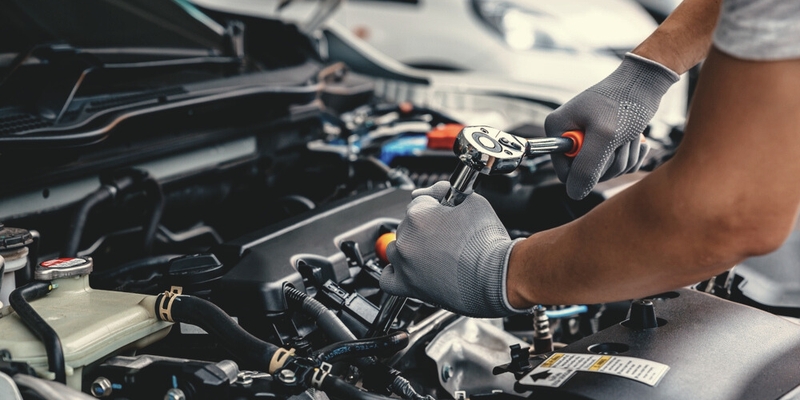
If you are not redirected within 30 seconds, please click here to continue.
Samedi: 10h – 16h HAE

If you are not redirected within 30 seconds, please click here to continue.
If you are not redirected within 30 seconds, please click here to continue.
Amid inflation and supply chain shortages, should you delay vehicle repairs?

Living costs have been rising rapidly over the last year. The current rate of inflation is 5.25%. While it has eased slightly over the past month, it remains higher than the Bank of Canada target of 2%. As a result of rising inflation and other pressures, 6% of Canadians are putting off necessary vehicle repairs because of inflation, according to a recent study by the Canadian market research firm Leger.
After all, as everything else has gotten more expensive, you might be tempted to keep putting off replacing your worn-down car tires with new ones or changing your oil. It's no big deal, right?
Is it okay to delay your vehicle repairs?
“Delaying vehicle repairs can have major consequences,” says Rodney Yo, owner of Best Online Traffic School. “First and foremost, delaying repairs can put you and other drivers on the road at risk. If a part fails while driving, it can cause a collision that could result in injury or death.”
For instance, most manufacturers recommend replacing your vehicle tires after six years. Putting off replacing worn-down, cracked, or low-pressure tires can hinder braking, lead to loss of control, and subsequently, increase your risk of collisions.
This also leads to higher repair costs over the life of the vehicle. A survey by the U.S.-based United Tires found that procrastinating on repairs can damage your wheels and rotors, costing you up to 13 times more – and an average of US$1,200 (roughly $1,615 Canadian).
While delaying vehicle repairs can help Canadians prioritize their spending in the short term, the long-term implications of doing so are not only dangerous but can also affect your insurance rates.
How does it impact your insurance?
“If your insurance provider finds out that you’ve delayed repairs, they may take actions that will affect your policy and premiums,” Yo says. “Insurance companies typically base premiums on many different factors, including the driver’s history of accidents and claims.”
“If you’re involved in a collision and a delayed repair contributed to the collision, they may deny your claim or raise your rates due to increased [future] risk,” he adds.
There may be specific terms in your policy about how soon you should be repairing your vehicle. If you fail to follow these terms, the insurance company may choose to deny your claim, reduce the amount they pay, or even cancel your policy.
“It’s always best to address any issues with your vehicle right away to avoid potential problems down the road,” he advises.
One way to save money amid inflation is to compare car insurance rates across multiple providers.
What if you can’t get your vehicle repaired because of the supply chain shortage?
On the other hand, Canadians who haven’t necessarily been procrastinating on repairs are facing another issue – delays in repairs due to ongoing supply chain shortages of vehicle parts.
A loss-of-use insurance endorsement offers a driver access to a vehicle in case they’re not able to get a part replacement and their car is out of service for an extended period. Depending on the specifics of the driver’s insurance policy and fault determination (in the event of a collision), the insurance company provides a temporary rental vehicle while the customer’s car is in the repair shop.
However, drivers across Canada are now seeing longer wait times for vehicle repairs and not enough rental car coverage. “One of the biggest challenges with long waits for vehicle repairs is the amount of rental car coverage the consumer has access to under their policy,” explains Daniel Ivans, RATESDOTCA insurance expert. “Most loss-of-use policies have an average cap of approximately $1,500, which might last a week or two at most.”
If vehicle repair times stretch longer than that, you are on the hook for the rest of the rental cost. “And those expenses can add up quickly as the cost of rentals has gone up over the past year,” he says.
Because of those unanticipated wait times, Ivans advises customers to consider increasing or maximizing their loss-of-use limit, as the additional cost is usually only a few extra dollars a month.
In any case, if your car requires necessary repairs, it’s best to get them done as soon as possible to avoid bigger problems in the future – and potential hits to your insurance premiums.
Don't waste time calling around for auto insurance
Use RATESDOTCA to shop around, and compare multiple quotes at the same time.
Get money-saving tips in your inbox.
Stay on top of personal finance tips from our money experts!









